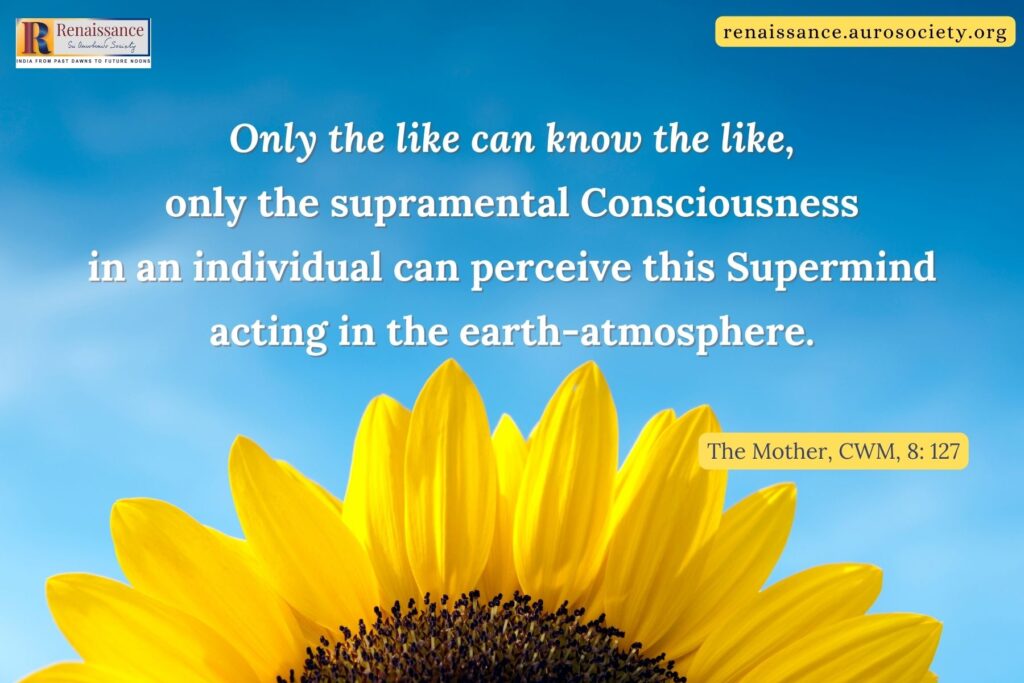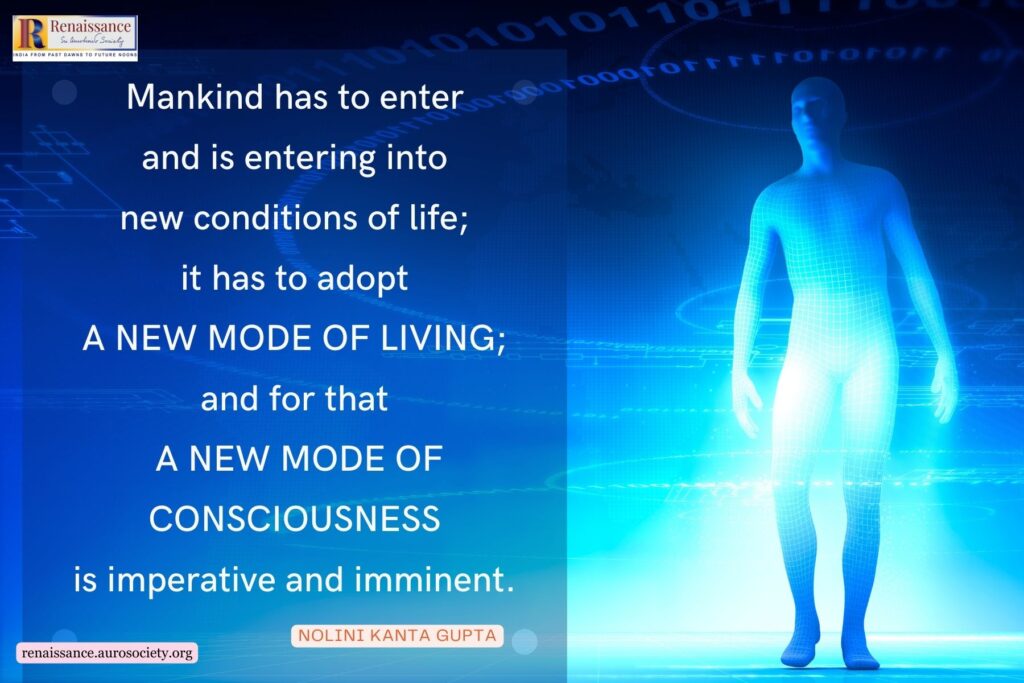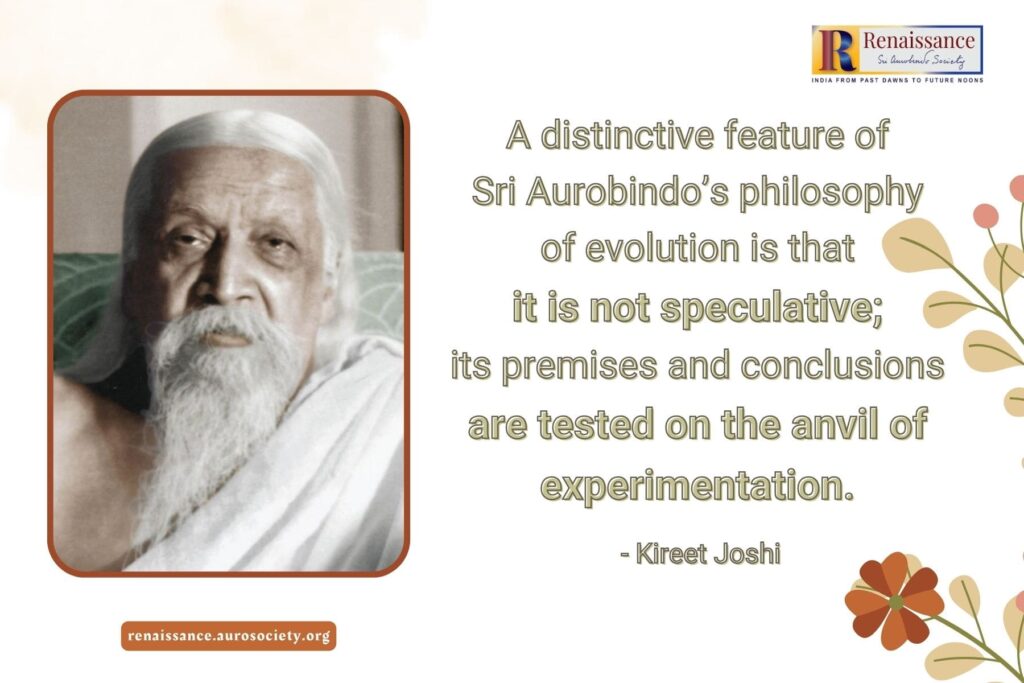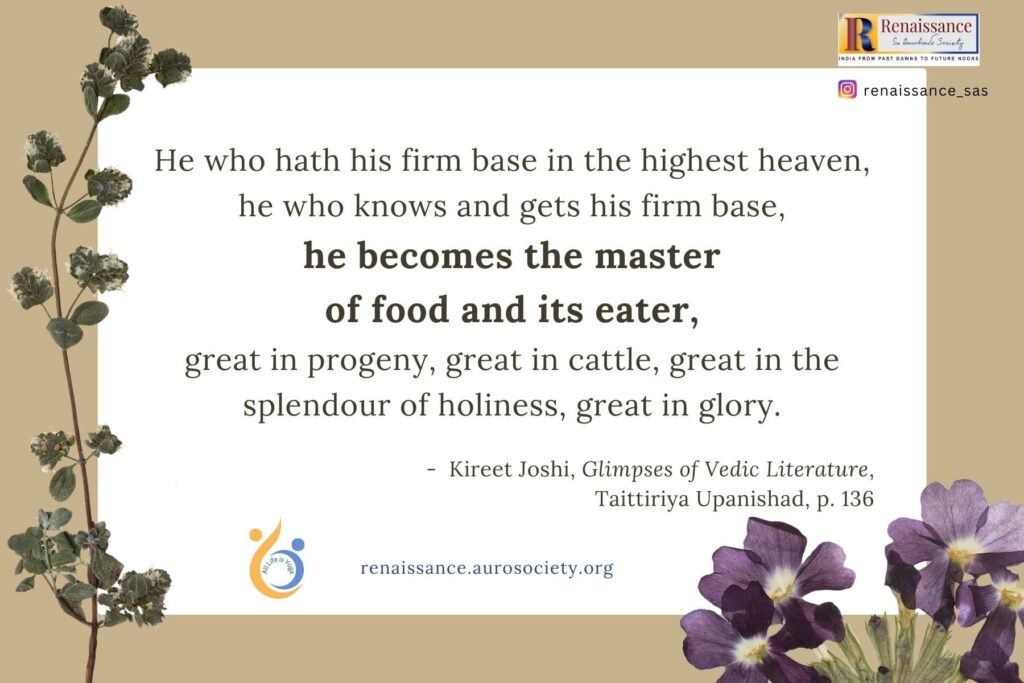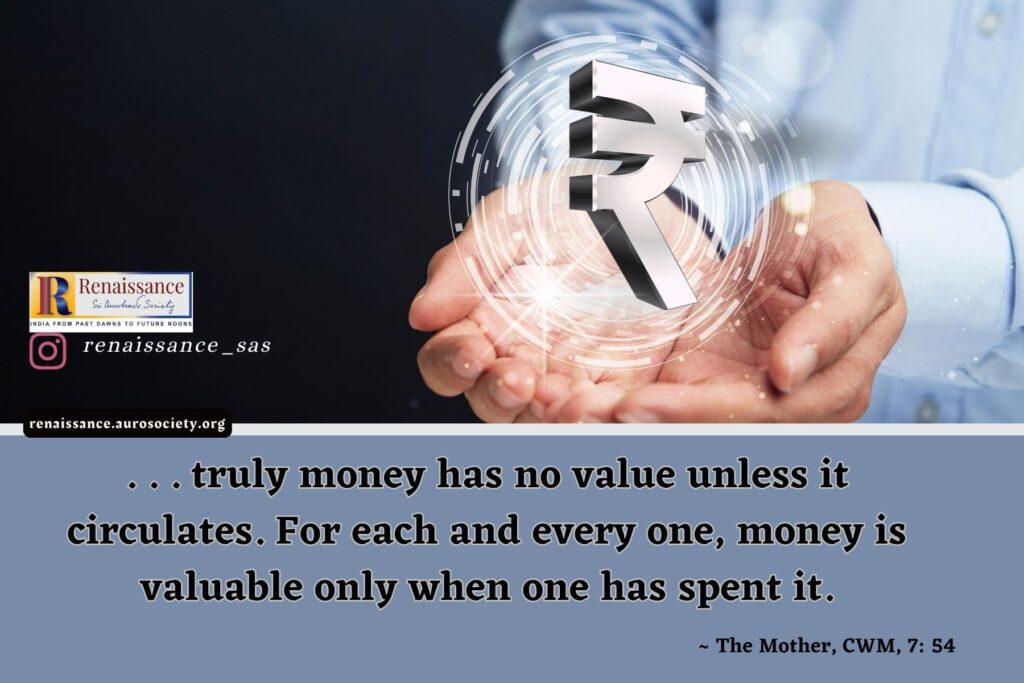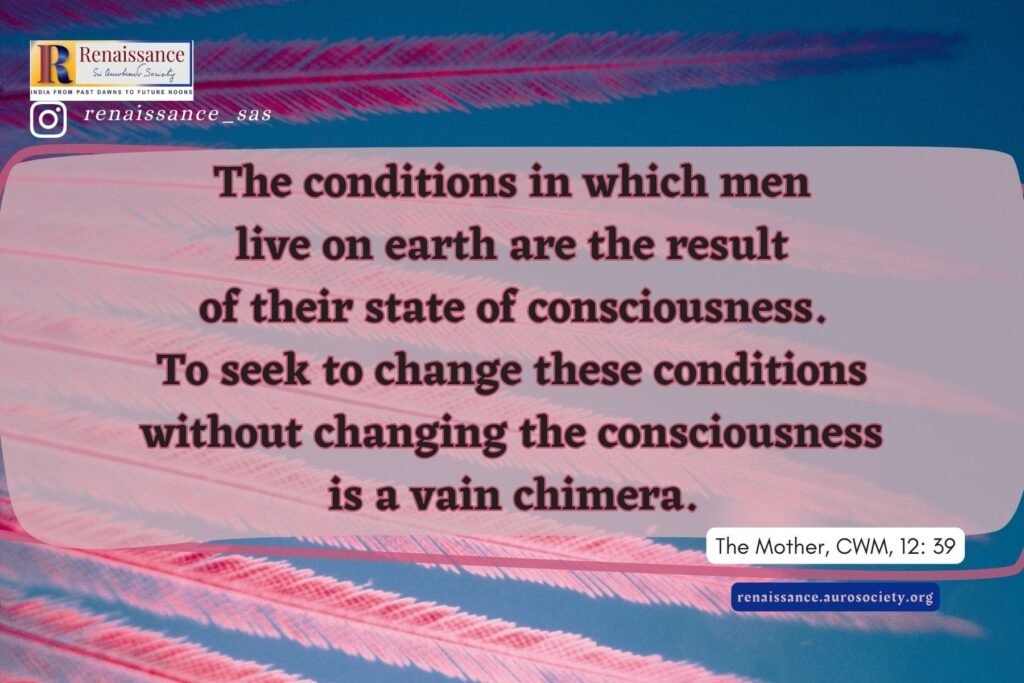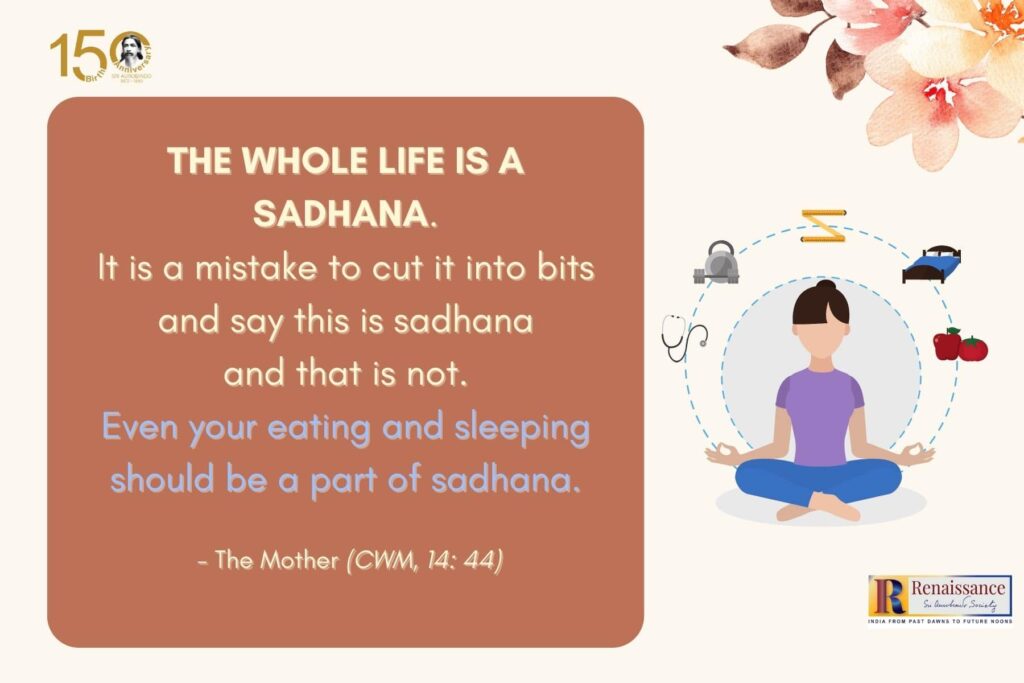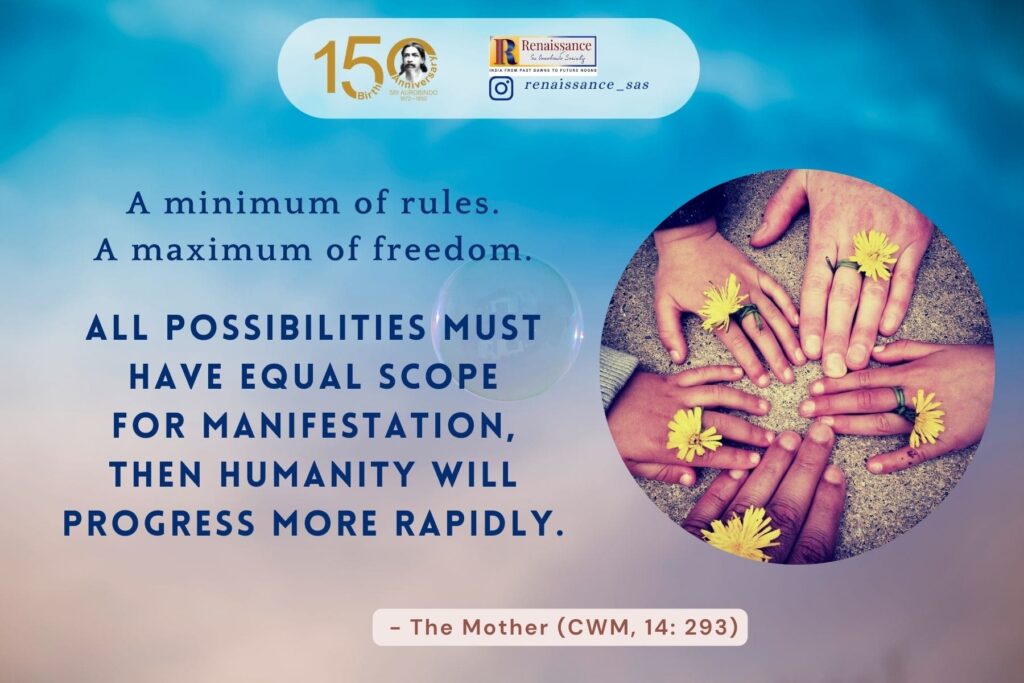The New Consciousness and Human Attitude
In this conversation with a disciple, dated 2 May 1956, the Mother explains clearly what it takes to perceive the working of a new consciousness in the earth-atmosphere. She reminds that if want the new supramental consciousness to transform us, we must open ourselves and make an effort to progress.
The New Consciousness and Human Attitude Read More »

